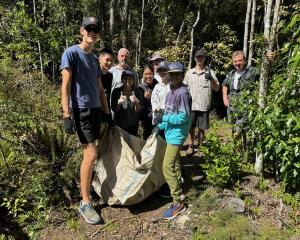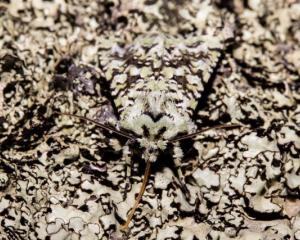
A crowd of music and bird lovers sit looking out across the bush to the mountains beyond, as a quartet of musicians summon birdsong from their instruments: a bellbird, a weka, a fantail, a lark, the calls evoked by the composers of the music they are about to hear. Beyond the Silver Peaks the sun has set and the sky is glowing orange.

The magic of music and place enchants, like the magic of the daily dawn chorus beyond the windows of the cafe in the ecosanctuary. In June* all comers are invited to hear it, when Orokonui opens its gates for some early morning tours. I decided I had to hear it for myself once more, in winter rather than summer.
At 6.45am all was still dark, yet I could hear a strong, shrill call carrying over the treetops as I walked towards the first feeding station. Soon there were answering calls, and presently the clatter of the hopper: a kākā was having an early-morning snack, though still invisible in the dark.
Kākā, it seems, are the earliest risers in the ecosanctuary — active half an hour before any other manu stirred. They are the alarm that won’t switch off, uttering varied calls, remaining in constant contact with others further afield. One high up in the big miro by the platform was so noisy I thought it would prevent me hearing the smaller birds, so I returned to the Fernbird Track/Te Ara Mātātā.
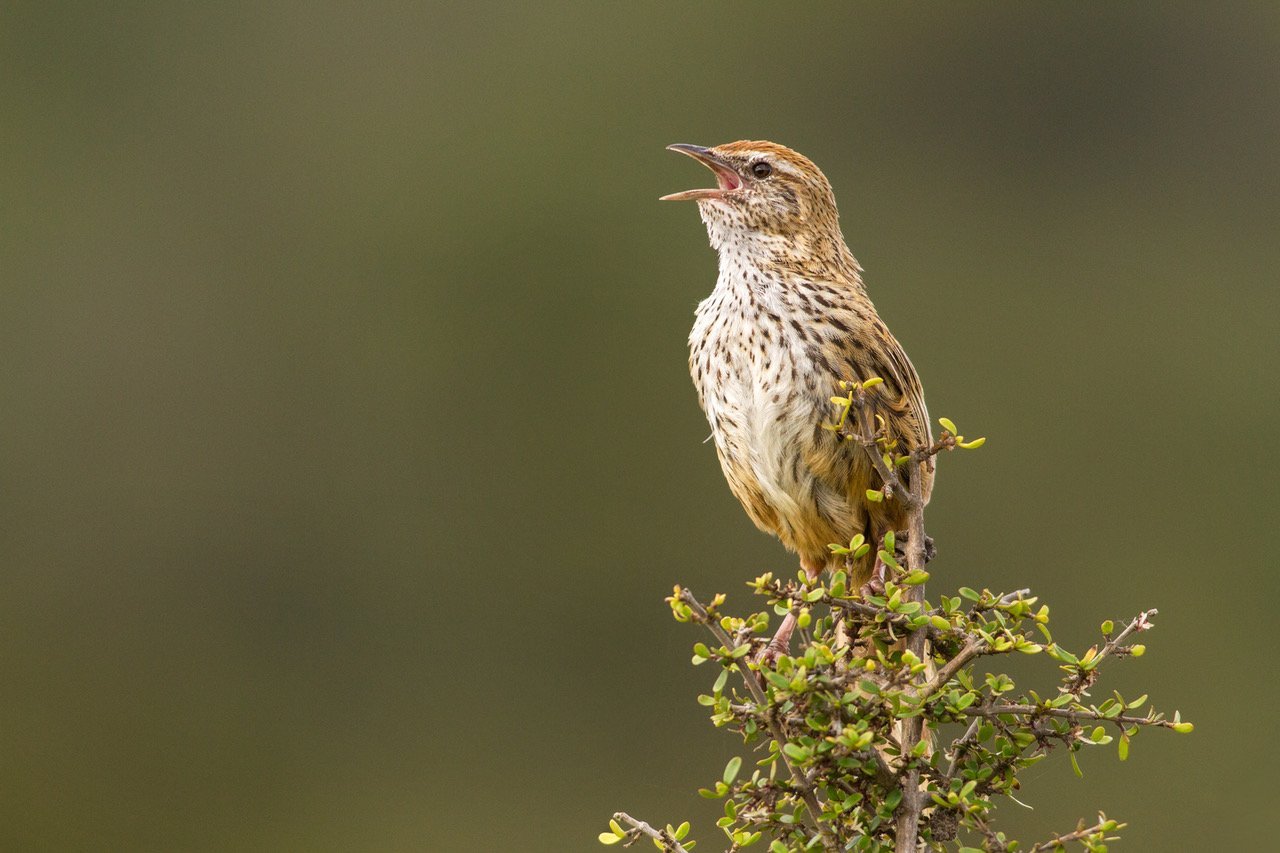
Dominating the soundscape now is a series of three strong ascending notes, the third more a squawk, repeatedly, now here, now there, in increasing numbers. Are those from korimako? No, eventually I associate the sequence with a tūī perching silhouetted against the dawning light, calling from a macrocarpa branch.
While one sees lots of tūī around the bird feeders during the day, right now there is just the one, insistingly asserting possession of its territory. That established, he now flits across to drink some sugar-water, then, nicely lubricated, flies on up to a higher branch, where he exercises his panoply of calls one by one, from melodious sounds to twitters like the smaller birds.
Walking further along Te Ara Tokoeka, the Kiwi Track, I hear the tweet of a rosella parakeet and meet more toutouwai busy foraging on the track. Then I recognise a single toutouwai call high up, but it’s more subdued than the calls we’ll hear later in the day. Further along the track another chitters as it hops around looking for food, a sound I haven’t heard from a robin before.
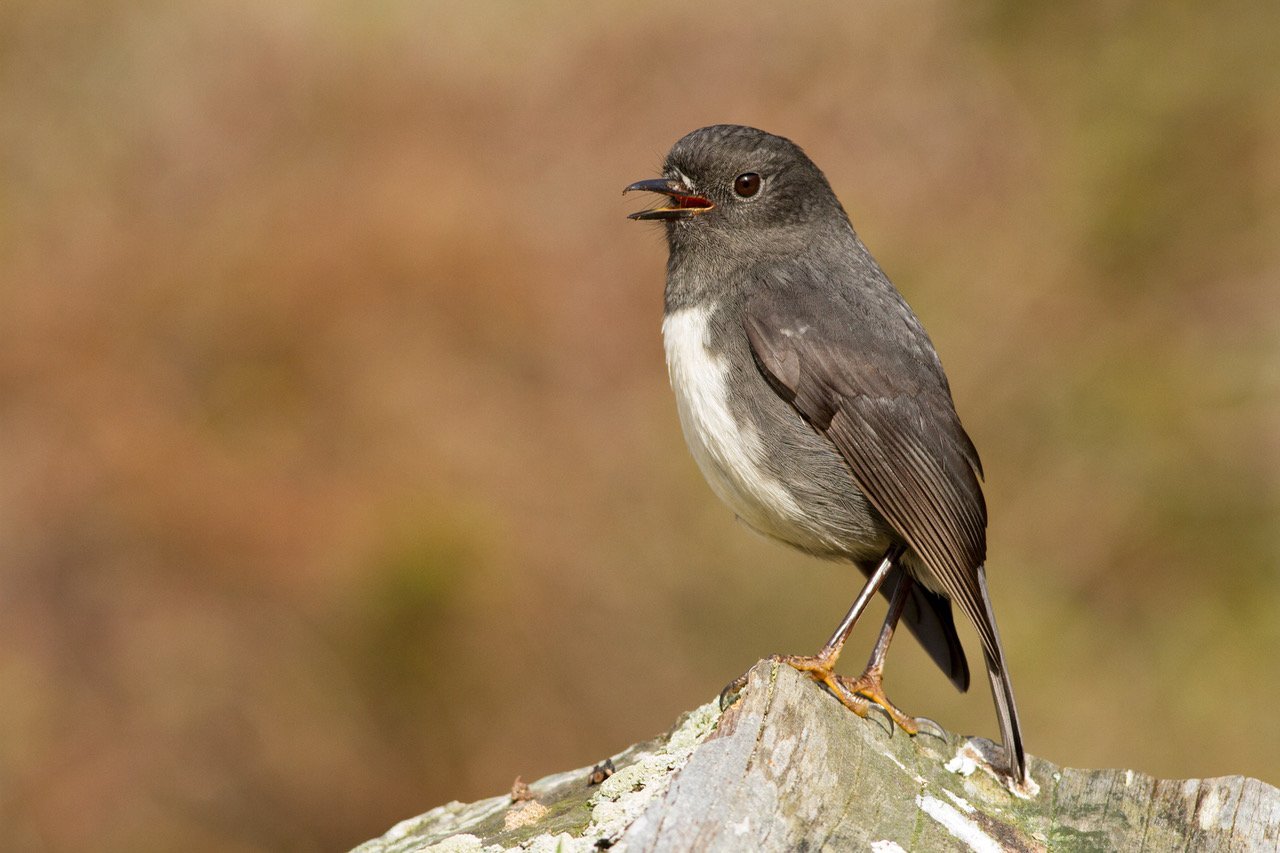
At the platform another tūī is busy demonstrating its range of calls, challenging any would-be word master to describe them all: it trills, imitates a bellbird’s dingdong, squeaks, warbles, whistles. I struggle to find the right descriptors. I can’t help but feel that our English words for birdcalls are better designed for British birds than those of Aotearoa.
According to Māori lore, Tāne, the god of the forest, created first the rākau (trees), and then the manu who filled the forest with their song. Humans followed, and learnt their kōrero (te reo Māori) from the ancient language of the birds. Whakataukī like "te korokoro tūī (the throat of a tūī)" celebrate great singers, comparing their skills to those of the tūī, who can produce up to 300 songs and continue learning new tunes throughout life.
So does te reo better describe the sounds of the birds as it names them? That’s not an easy question. Korimako may not convey a bell-like sound, but is mellifluous nevertheless. The bellbird is also known as makomako, the name given to the wineberry, a tree with fragrant flowers and luscious berries, offering the bellbird food from spring to autumn. So the korimako perhaps gains its name by association with its food.
One example of a name imitating the call of the bird in te reo is the one given the brown creeper, pīpipi. It is said to imitate the birds’ high-pitched call as they travel in flocks through the treetops feeding. But most names don’t appear to imitate sound.
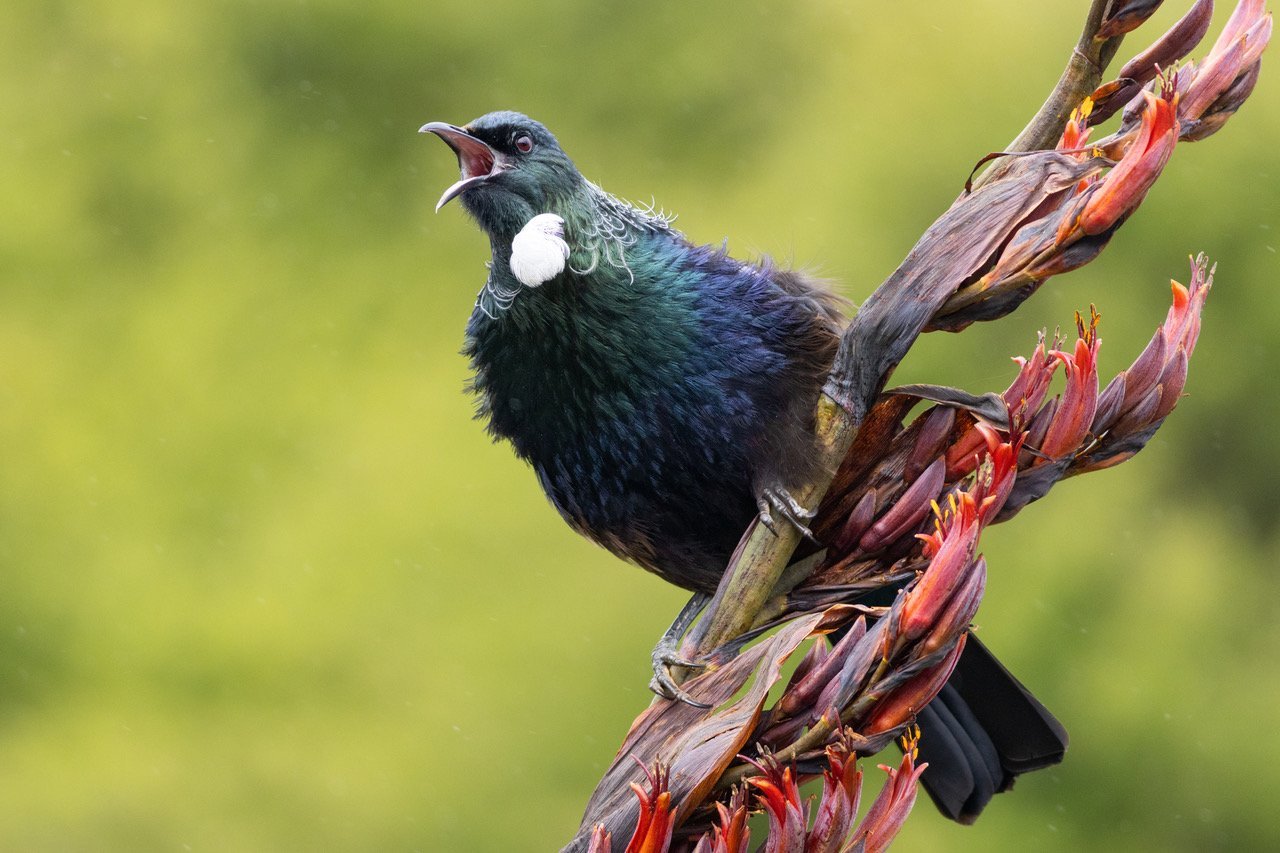
As I leave the sanctuary in the full sunshine of morning, a cloud of tauhou (silvereyes) is flocking and twittering around the sun-soaked seedheads of the toetoe by the visitor centre. Another day is on its way.
The experience
• Welcome Te Rā, the dawn experience at Orokonui. June 16 and 29, 7.30am-9.30am.
Alyth Grant is a volunteer at the Orokonui Ecosanctuary.




